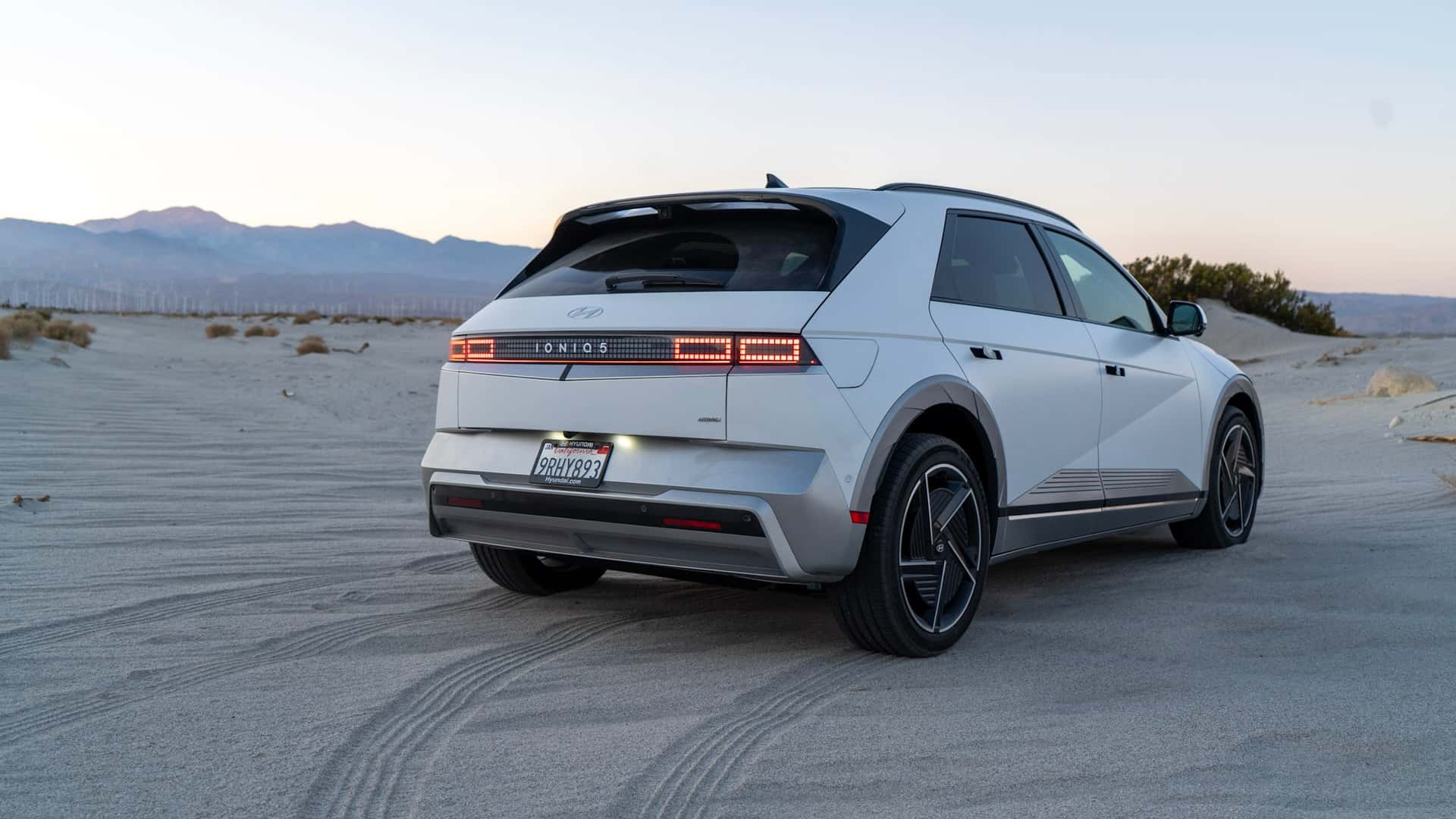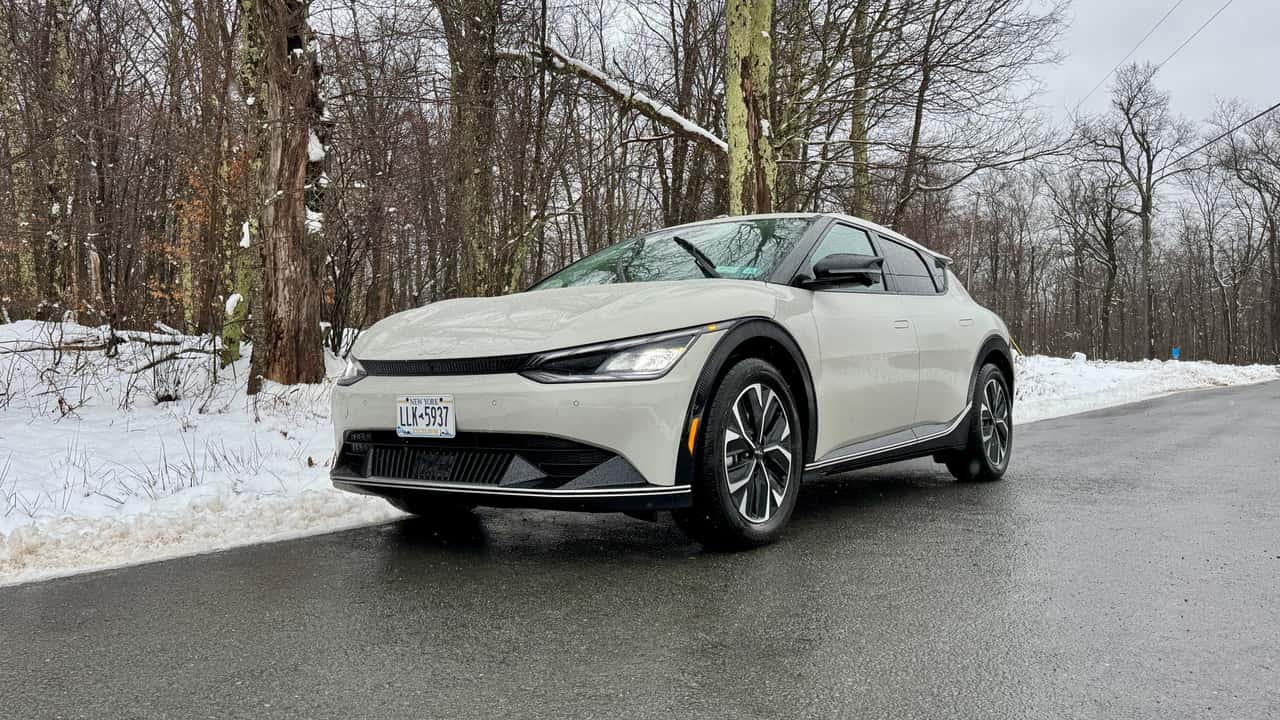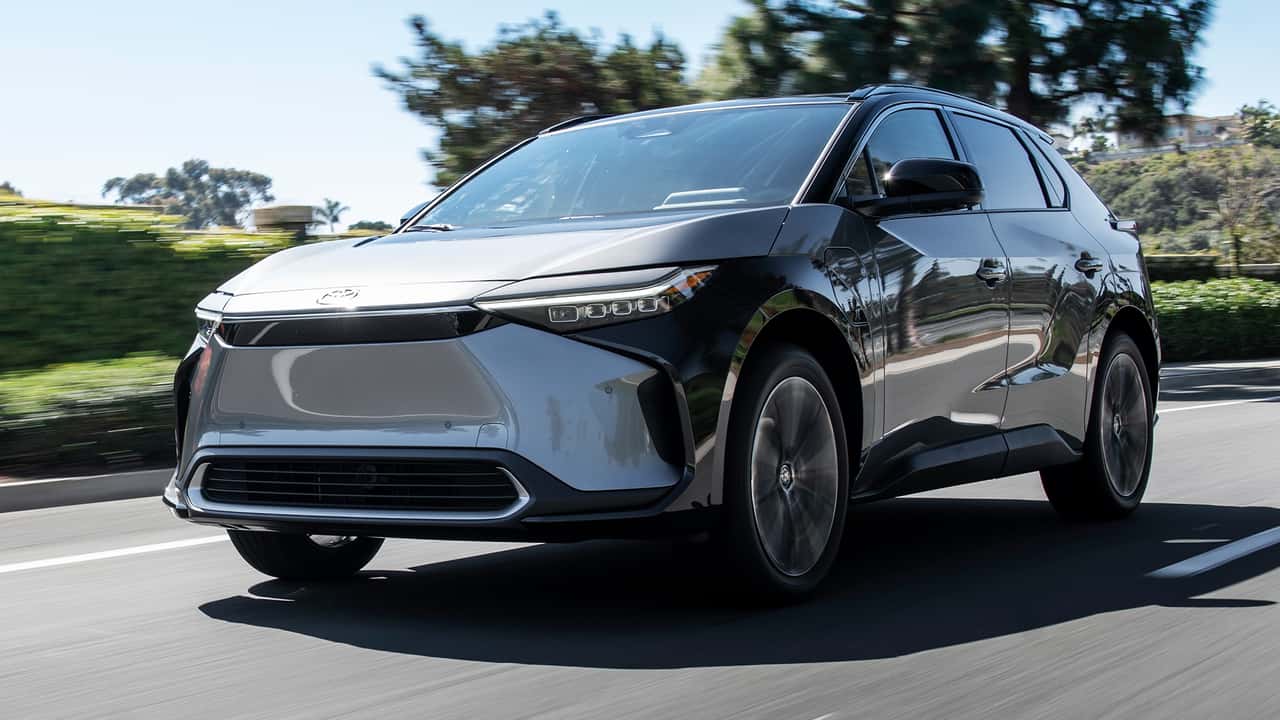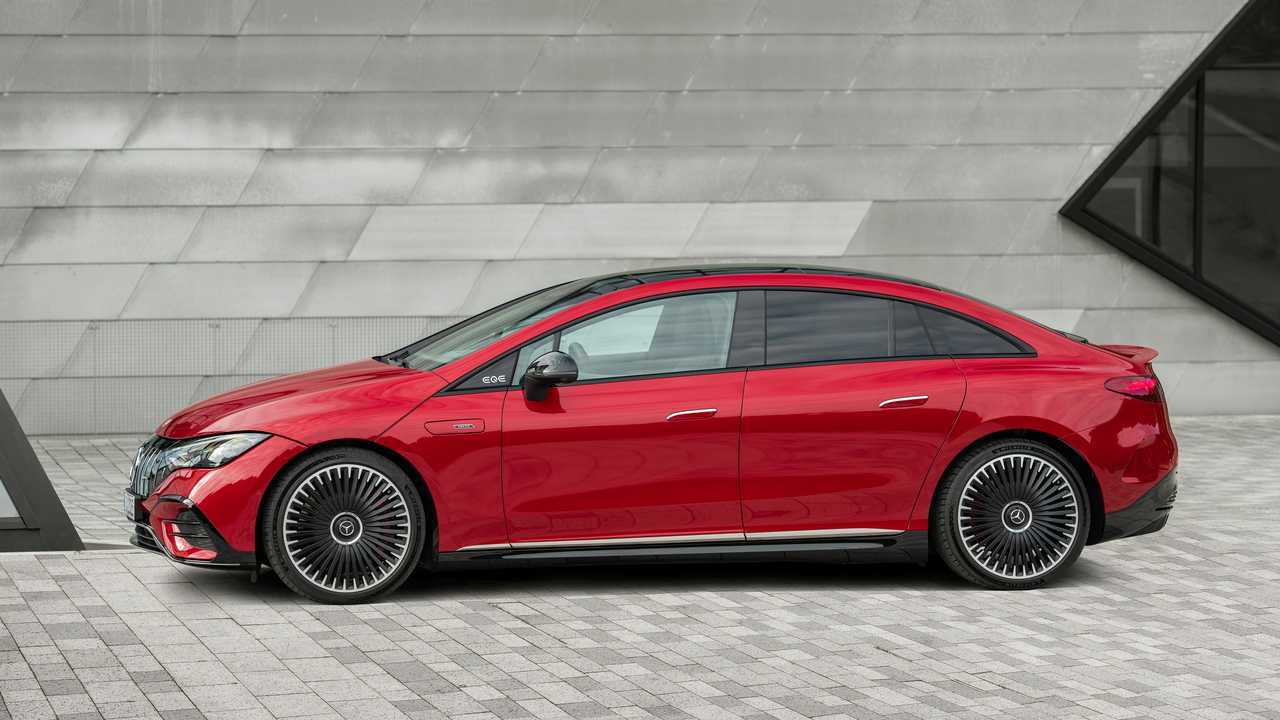
The Toyota bZ4X, Subaru Solterra, and Nissan Ariya aren't so much.
- A new study by S&P Global Mobility investigates which electric vehicles are attracting the most customers away from other brands.
- In the automotive industry, these sales are referred to as "conquests."
- The Hyundai Ioniq 5 took the top spot, with approximately 74% of its sales coming from customers who previously owned other brands. The Toyota bZ4X ranked last.
In general, electric vehicles are causing consumers to switch allegiances and allowing brands to poach buyers from their competitors in unconventional ways. This phenomenon has been well-documented for years, and car manufacturers frequently tout their conquests as a major achievement.
Some buck this trend completely by making almost no conquests at all.
And, because battery-powered options currently have limited availability, electric vehicle buyers are more likely to consider a new choice, even if it's from a brand they're not familiar with.
This creates a significant opportunity for brands that can successfully adapt to this change, gain a strong position, and outperform their rivals. Automakers that fail to adjust quickly or effectively will lose their loyal customers to these emerging brands, and once those customers are gone, they may not return.

The Kia EV6.
With striking designs and top-notch charging and range specifications, that is proving to be a winning combination.
The Hyundai Ioniq 5 took the top spot in S&P Global's study, which analyzed 29 new electric vehicle models with at least 15 months of sales data. A remarkable 74.2% of Ioniq 5 sales—approximately three-quarters—are from customers switching from competing brands. This is significantly higher than the 52.5% average for Hyundai as a whole.
| EV Model | Model conquest rate | Brand conquest rate | |
| 1. | Hyundai loniq 5 | 74.2% | 52.5% |
| 2. | Cadillac Lyriq | 72.6% | 56.6% |
| 3. | GMC HUMMER EV (pickup) | 71.3% | 55.0% |
| 4. | Kia EV6 | 70.3% | 57.4% |
| 5. | Volkswagen ID.4 | 70.3% | 56.1% |
| 6. | Volvo XC40 Recharge | 69.5% | 58.9% |
| 7. | Mini Cooper EV | 68.3% | 60.2% |
| 8. | Hyundai loniq 6 | 65.5% | 52.5% |
| 9. | Hyundai Kona EV | 65.3% | 53.0% |
| 10. | Audi Q4 E-Tron | 62.0% | 54.6% |
| 11. | Kia Niro EV | 62.0% | 57.4% |
| 12. | Porsche Taycan | 61.2% | 61.5% |
| 13. | BMW i4 | 60.4% | 51.4% |
| 14. | Ford Mustang Mach-E | 59.5% | 36.4% |
| 15. | Nissan Leaf | 58.9% | 41.3% |
| 16. | Ford F-150 Lightning | 58.2% | 36.7% |
| 17. | Mercedes-Benz EQB | 56.6% | 53.1% |
| 18. | Mercedes-Benz EQS SUV | 53.3% | 53.1% |
| 19. | BMW iX | 52.9% | 51.9% |
| 20. | Audi E-Tron GT | 51.0% | 43.7% |
| 21. | Mercedes-Benz EQE SUV | 50.7% | 52.6% |
| 22. | Mercedes-Benz EQS | 49.5% | 54.5% |
| 23. | Audi Q8 E-Tron | 48.2% | 55.2% |
| 24. | BMW i7 | 47.9% | 50.5% |
| 25. | Lexus RZ | 47.5% | 55.1% |
| 26. | Mercedes-Benz EQE | 45.3% | 53.1% |
| 27. | Subaru Solterra | 45.3% | 47.6% |
| 28. | Nissan Ariya | 40.9% | 41.3% |
| 29. | Toyota bZ4X | 33.5% | 40.5% |
| S&P Global Mobility — Through September 2024 of the calendar year. |
All of them scored 70% or higher. Moreover, most of the electric vehicles in the study performed better than the average of their respective brands.

The 2025 Toyota bZ4X.
The Toyota brand's electric vehicle came in last, accounting for 33.5% of sales that came from winning over customers from competing brands. The average for Toyota is higher, at 40.5%, so its sole EV in the U.S. is actually hindering its ability to attract new customers.
Even Toyota, which has been hesitant to fully adopt electric vehicles and believes hybrids are a more suitable solution at present, has acknowledged that this is a problem. An executive recently stated that Toyota has

The Mercedes EQE sedan.
The overwhelming number of Mercedes EVs at the bottom of the list may be due to the EQ line's unique, rounded design, which deviates from traditional Mercedes styling and has not been well-received by customers.
According to S&P Global, the top-ranked EVs in its list exhibit above-average range, charging speeds, and horsepower, whereas the lowest-ranked models fall short on these metrics.
The takeaway for car manufacturers seems to be straightforward: create excellent electric vehicles and you will attract buyers away from brands that are unable or unwilling to do the same.
Got a tip about the electric vehicle world? Contact the author.
More EV News
- There is a growing demand for Electric Vehicles, as a matter of fact.
- Electric Vehicle Sales Soared at the End of 2024 - Here's the Reason Why
- Are Electric Vehicles with Gasoline Engines the Future of Transportation?
- Jeep Is Providing Significant Discounts on the Wagoneer S Currently
- Tesla's Cybertruck's Full Self-Driving Beta Raises Concerns for Autonomous Ride-Hailing Rollout
- Toyota's Third-Generation Hydrogen Fuel Cell Offers Increased Range
